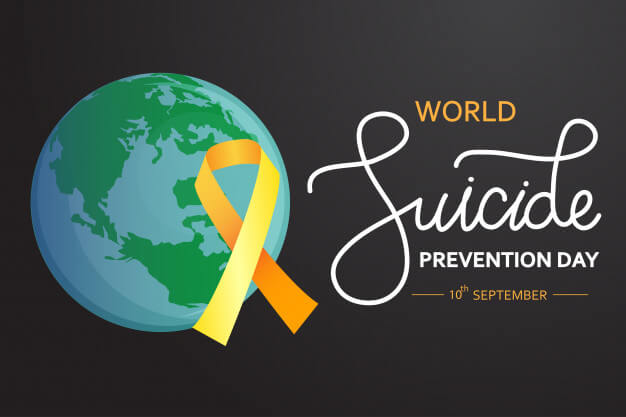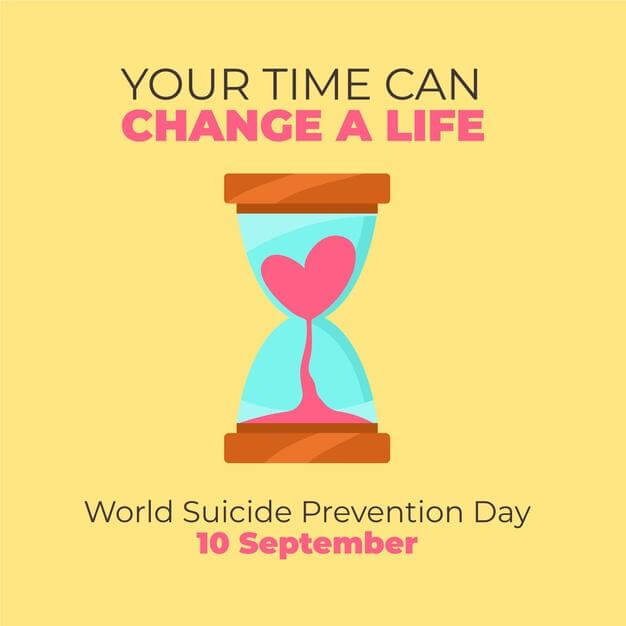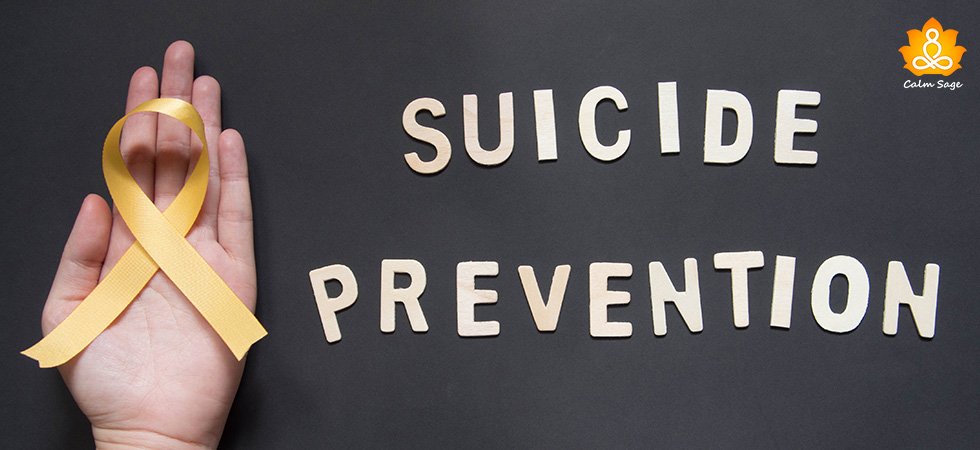Suicide Prevention: Your 4 Steps Can Save Someone’s Life! (Learn Them)

Is there someone in your contact who is acting quite off recently or is having suicidal thoughts? Do you wish to help them in the best way possible?
Yes?
Well, you are at the right place. We are sharing with you 4 steps suicide prevention tips with you to help someone who is suicidal. These steps will help you understand the entire process to ensure the safety of other people.
Suicide is a sensitive topic and many a times people try and avoid talking about it. That becomes a leading cause of it. That people don’t know how to communicate about it, ask about suicidal thoughts and further be there for the other person. But this suicide prevention day Calm Sage is taking an initiative to help you help someone with suicidal thoughts in the right manner.

4 Step Suicide Prevention Tips:
Step 1: Be Aware and Ask
It all begins by being aware! You can’t really extend your helping hand until and unless you are not aware of the signs of suicide. But often these signs are not displayed overtly. That’s when asking comes into play. If you are aware that something wrong is happening in your friend’s life or he is going through a phase of depression then you should get courage and ask them. Here is a guideline for you to follow:
Phrases to start such a critical conversation on suicidal thoughts
To start a conversation with someone who is having suicidal thoughts can be tricky. We recommend you to start with some caring phrases rather than directly using clear words. Some of the beginning phrases that you can use are;:
“Hey you seemed little off recently are you okay?”
“I am worried about you. Are you okay?”
“Is there something you want to talk about?”
“I know you and I can sense that there is something wrong. Let us talk about it.”
“I have seen some unusual changes in you. I want to help you.”
Direct and Specific Questions To Ask
If you have any intuition that the other is having suicidal thoughts ask them directly. Get some courage, use the specific words, and be direct. You may use direct questions with specific words like:
“Have you had thoughts of suicide?”
“Have you been recently thinking of giving up on your life?”
“Are you planning to harm yourself in any way?”
Being Aware of Non-verbal Cues:
When you ask any such direct question pay close attention to the non-verbal cues and body language. They might be feeling bad about having suicidal thoughts and probably not be willing to share them. But, when you out of the blues ask them, they might be shell-shocked. There is a high chance that they might deny it on your face through words but their body language might not sync with them. So, here are signs for you to note after asking the suicidal thoughts:
- They might lose eye-contact with you.
- They will try and change the topic.
- They might palpitate.
- Their facial expressions might display shock.
- They will probably run short of words and their voice will go shaky.
Beware of all the cues that their body displays when you ask them directly about their suicidal thoughts.

Step 2: Be All Ears (Mentally and Physically)
After following the first step there is a possibility of two outcomes:
- The person might agree about his suicidal thoughts, or
- He might completely refuse it.
We shall now learn to help someone who is suicidal in both the conditions.
Situation 1: If they confess their suicidal thoughts completely or partially.
If they confess their suicidal thoughts with you. You should focus on the five major aspects of their conversations.
- Hope for future/treatment/life.
- Specific reasons against taking such extreme actions.
- Ambivalence.
- Connection to faith (community or god).
- Support systems.
If they don’t address these five areas, you should start your conversation with these prompts. It will further help you understand their condition even better.
Situation 2: If they say they are NOT suicidal.
Reassure that person that you won’t judge them for their thoughts.
The Don’ts to Take Care Of
- Don’t be a philosopher or a preacher, just be an active listener.
- Don’t put their thoughts to shame or minimize their problems.
- Don’t argue with them on how they feel about their life situation.
- Don’t make promises with them.
Step 3: Be Responsive
After being aware of the suicidal thoughts and understanding the reasons behind the same comes your chance to respond. You shouldn’t respond with judgement or opinions. Let your responsiveness display kindness, care, and empathy. To deliver this responsiveness through your actions and words here is a list of Do’s for you to abide by:
- Stay calm and content.
- Stay connected with them and convey care.
- Remove any sort of self-harming tools from their immediate surroundings.
- Acknowledge their pain and understand that their pain is real.
- Do not share their pain or issues with others as a topic of fun and discussion.
- If their self-harming tendencies are extreme and the thoughts are repetitive call suicide prevention helpline.
To show empathy you may use some of these reassurance phrases:
- Stay calm and content.
- Stay connected with them and convey care.
- Remove any sort of self-harming tools from their immediate surroundings.
- Acknowledge their pain and understand that their pain is real.
- Do not share their pain or issues with others as a topic of fun and discussion.
- If their self-harming tendencies are extreme and the thoughts are repetitive call the suicide prevention helpline.
To show empathy you may use some of these reassurance phrases:
“You are not alone. I am here for you. Please feel free to reach out anytime.”
“I may not understand exactly how you feel but trust me I care about you and I want to help you.”
“You will get through this, we will get through this phase.”
“It is okay to feel this way. Thank you for sharing your feelings with me. We will work on it together.”

Step 4: Be In Touch
With you being by your loved one’s side can surely prevent someone from harming themselves and save a life. You help them get out this feeling of being entrapped by being their constant support system.
- You can be their motivational partner and help them take care of themselves and not withdraw from the activities they love.
- You can be their therapy partner. Not only can you encourage them to seek help but also take them to a therapy centre.
- You can break their loneliness (internal one) cycle. They might be all happy, faking smiles, and enjoying the outside world but deep down feel lonely. You can visit them personally and break this cycle for them.
- You can call them or send an email to check-in.
Be their shoulder to cry on, ear to pour their heart out, and a teacher to guide them in the right direction.
Follow these 4-steps suicide prevention tips and save someone’s life.it did help me at personal and professional level. It will definitely help you!
If you need someone to talk to or need more guidance to help someone who is suicidal feel free to reach us on INFO@calmsage.com
More power, love, and a big warm hug to you!





















This is probably the most important piece of information during covid-19.
This is really a life saver post, Thank you so much for sharing this!
I can relate to whatever you explained. I had a friend with the same tendency these tips helped me.
I wish this information was available years ago. Suicide prevention awareness is very important and crucial. I'll be sharing this with my friends. Thanks for your support.
Support #SuicidePrevention . I am in support with #MentalHealthAwareness
Helping someone from that edge of life is not easy and with these steps, it makes that feasible. Very appreciative of this post.
something that's badly needed to be understood by everyone in the society today... good work guys
I am a little worried. Is there a chance that asking direct questions about suicide would really divert the person's mind towards giving up on life if they were not already thinking about it?
These tips were a big help. Frank Kaminski Grace Compassionate Ministries.